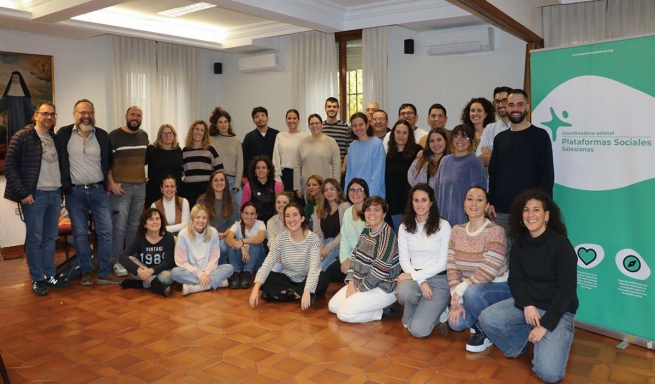The main objective was to provide practical tools to effectively address the mental health challenges of children and adolescents of different ages who are served by social platforms across Spain. In addition, emphasis was placed on making visible the integration and normalisation of mental health in the educational plans of Salesian organisations.
The first speaker, Fr Luis Fernando López Martínez, opened the event on the first day with a presentation that highlighted the importance of understanding mental health from a broader perspective, considering it a complex phenomenon which should be given priority in defining the strategies that educational teams manage during the year. He stressed the importance of understanding this aspect, especially in the current context characterised by the digital age and social networks, highlighting how these platforms can intensify emotional vulnerabilities due to the overexposure of individuals and social comparisons.
The day continued with two thematic blocks: an approach to the field of mental health and its current situation, and the current challenges and future tasks in this field.
On Wednesday afternoon, María José Ortega Cabrera dealt with the main mental health problems in childhood and adolescence, classifying them according to their severity. The characteristic problems of each phase were examined, offering guidelines to address them and indications to differentiate typical behaviours from those that could indicate deeper problems, with the aim of ensuring care and listening to the child and adolescent population accepted in Salesian centres.
On Wednesday afternoon and Thursday morning, Aurora and Álvaro took part. They are two members of the Magone psychological team – a resource open to all platforms belonging to the Pinardi Federation and to the various needs detected in any of the centres belonging to the Salesians in Madrid.
Their interventions have focused on the importance of prevention as a fundamental method for mental health care, promoting healthy habits and emotional self-care, both in educational staff and among children, young people and young adults who flock to Salesian works. Through a participatory workshop, specific protective actions were presented for each phase, reiterating the need to promote safe environments and encourage prevention from an early age.
The event ended with the presentation of different dynamics and lines of thought, applicable in socio-educational, support and volunteering environments, with the aim of inspiring actions to protect the health of children, adolescents and young adults with whom the various interventions are carried out within the framework of Social Projects. Finally, an opportunity for discussion was opened to allow participants to share their reflections and what they had learned, with the aim of generating an enriching exchange that could be replicated in the specific situations of their different local places.


